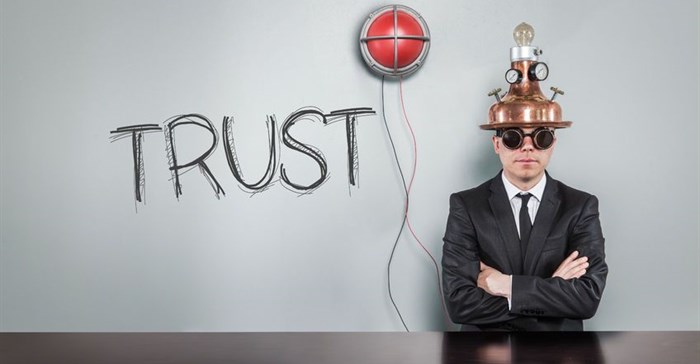
There are a probably a number of attributes – which differ across product classes – that affect the relationship between the consumer and the brand, but I would postulate that trust ranks pretty much up there. Today, there are so many features on electronic products that it makes it difficult to rank them in preference. We have to go with how we feel about the brand, or the salesperson.
In the book Pre-suasion by Robert Cialdini, he relates the story of how Jim (his real name) managed to induce trust during the sales process of a somewhat complicated product. Jim’s company made expensive heat-activated home fire alarm systems. Pretty serious stuff.
Trust, according to Cialdini, is one of those qualities that leads to compliance with requests, provided it has been planted before the request is made.
The sales sequence taught to Jim and all the sales reps was pretty standard. After a bit of small talk to build rapport, the prospects (usually a couple) were given a ten minute written test that revealed how little they knew of the dangers of a home fire. The rep would then demonstrate the system and pull out a manual that pointed out its competitive advantages to other systems. Not Jim.
When Jim’s prospects were halfway through the written test, he would slap his forehead and state, “Oh I forgot some really important information in my car. I don’t want to interrupt the test, so would you mind if I let myself out and back again?” Often it required giving Jim the keys to the home.
Jim’s explanation as to why he sold more than the other reps was simple: “Who do you let walk in and out of your home on their own? Only somebody you trust, right?”
The question is, does trust work both ways? If I asked a customer to please look after my store while I pop out for a minute to the restroom, does that reverse trust from the seller to the buyer influence the purchase in any way? I think it does, not because it has built a relationship of trust – albeit one way – but it has built a relationship.
But let me substantiate my case with the following study, also in Cialdini’s work. Individuals who held a warm object briefly – for example a hot (versus iced) coffee – immediately felt warmer toward, closer to, and more trusting of those around them. The result was that they became more giving and cooperative in the social interactions that followed.
People who feel that someone likes and trusts them will be more likely to purchase from that person. Once the customer recognises that you like them they are more inclined to trust your judgment, because of the universal assumption we make: people who like us will steer us in the right direction.
And that counts for something. Trust me.
